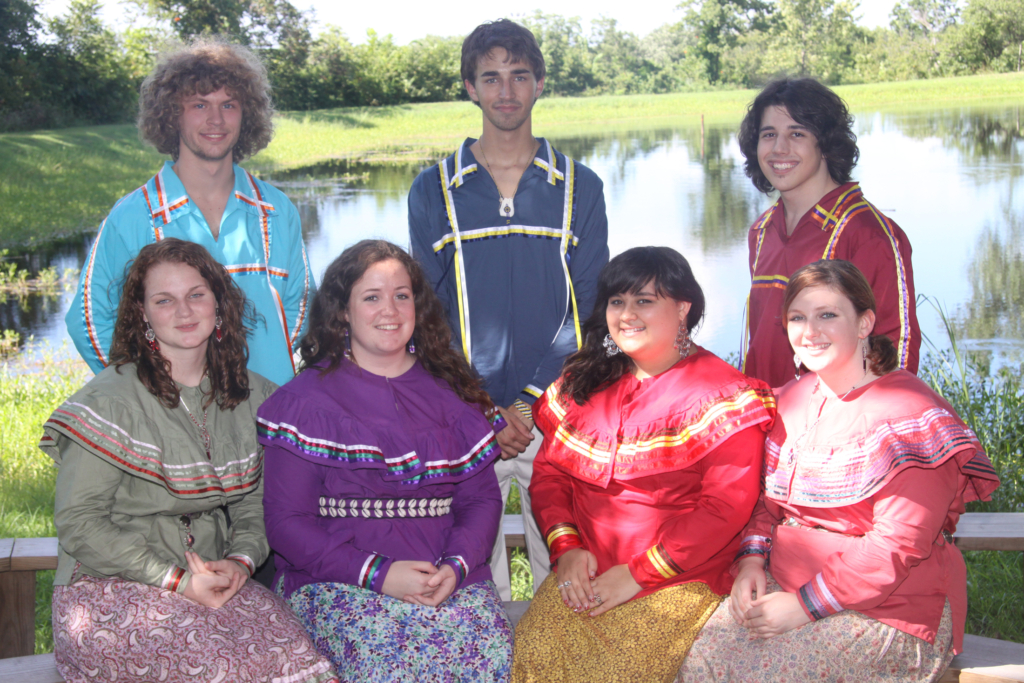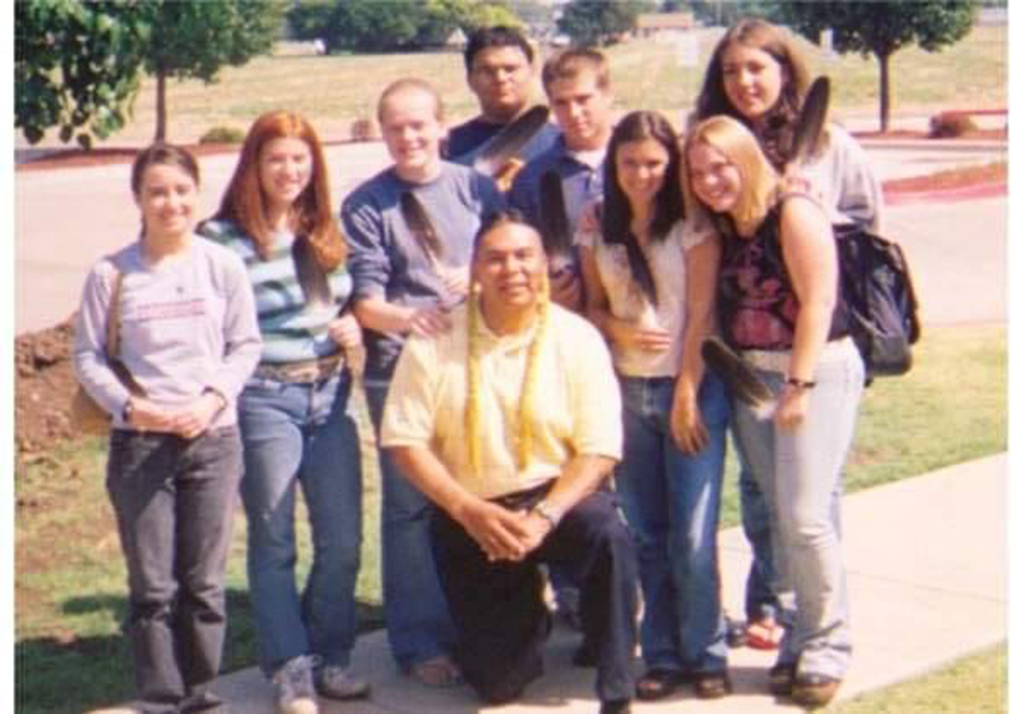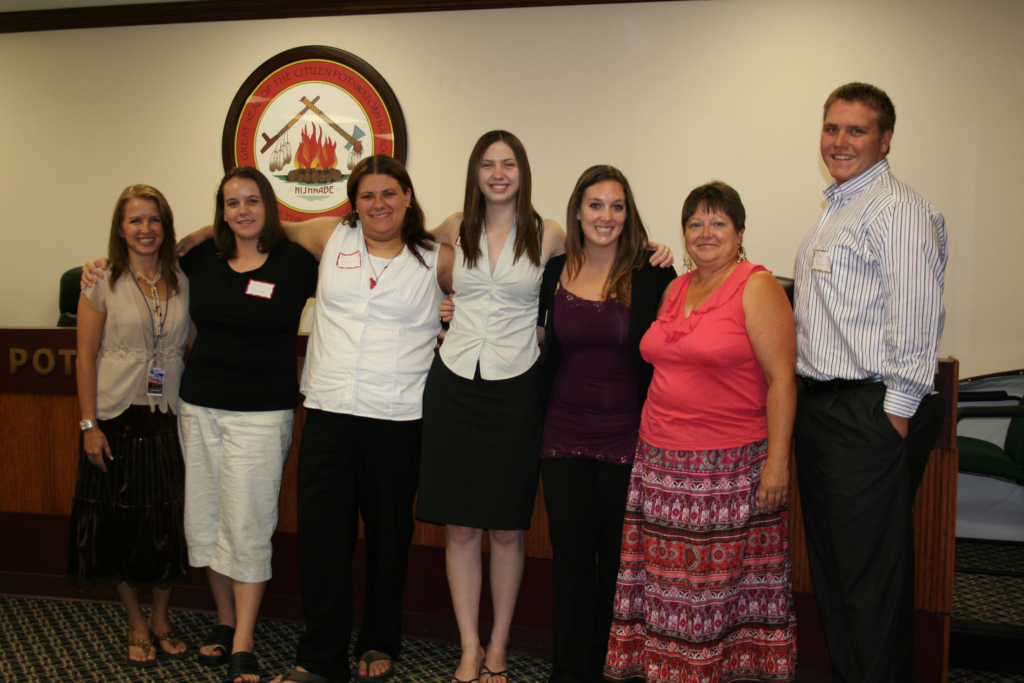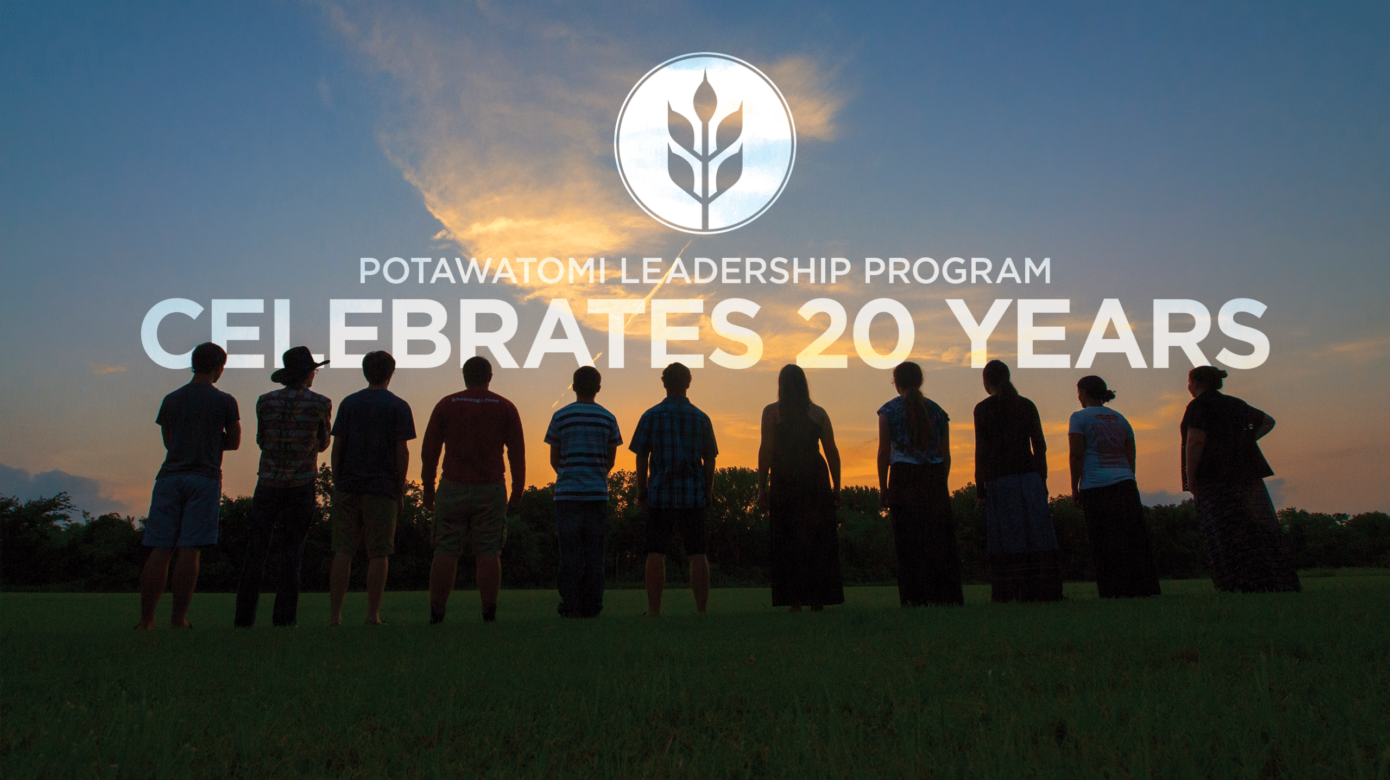This month 20 years ago, Citizen Potawatomi Nation welcomed the first group of students to participate in the Potawatomi Leadership Program. Brittany Destree Dek was 17 years old in 2003 and participated in the PLP between her junior and senior years of high school. The Bertrand family descendant traveled from Illinois to CPN land near Shawnee, Oklahoma, and stayed for six weeks.
“It was a cultural experience that we were feeling tied to in a way that I don’t think that we would have without that the leadership program,” she said.
Each year, the Tribe invites approximately 10 students to spend six weeks at the Nation’s headquarters as interns. They learn about the Tribe’s government, resources and enterprises as well as Potawatomi culture and their Tribal identity. They meet with each department, listen to presentations from CPN leaders, attend ceremonies and the Family Reunion Festival, and present their ideas for Tribal improvements to the larger community.

The first year or two, students stayed in the dorms at the now-closed St. Gregory’s University, but that quickly changed after the Tribe bought a piece of property, affectionately called the Sharp House after the previous owners. Margaret Zientek is the director of the Workforce Development & Social Services Department; however, each summer, she also lives with the PLP interns as their house mother.
“It’s amazing to me to see the students walk away and how many of them are better prepared for college and dorm life and sharing roommates because they had to,” she said.
Approximately 200 students have participated in the program, and Zientek sews each one a set of regalia in time for the Family Reunion Festival powwow at the end of June with few exceptions.
Adulthood
While some of the qualifications have changed over the years, the program welcomes high school graduates on their way to their freshman or sophomore year of college to apply. Most participants experience some independence for the first time while living with the Tribe. Zientek has seen many of them grow from children to young adults.
“They really learn to talk and to listen and to work together on cleanup,” she said. “And they learn how personalities are different. And it’s so much fun to watch them evolve and to see them develop friendships. And some of them I’ve seen come back year after year, and to see them grow and see their faces light up when they talk about what their passion is, I love it.”

Zientek said living with the young Tribal members keeps her youthful, and they teach her things as well, such as the differences between vegan and vegetarian diets.
For many participants, the experience changes their educational and career paths. Some transfer schools, change their majors or move across the country. Dek decided to attend the University of Oklahoma and started as a Native American studies major before switching later.
“It was like my first view at independent life as well as working for the Tribe and just kind of an awakening into all of these things that I didn’t really know about myself as a Tribal member and just as an adult human,” she said.
Throughout the last 20 years, PLP participants have returned to work for the Tribe in a variety of capacities, found purpose in their career through inspiration ignited by the experience, and made friendships and relationships that have lasted a lifetime.
“The PLP opened my eyes to how much tribes do for our communities, which is an honor to experience given that the last 50 years have been a ‘rebuilding’ period for tribal nations, so to speak. With this in mind, it not only deepened my appreciation for my heritage but fueled my curiosity about how we can be active participants in bettering Indian Country,” said Katie Simpson, class of 2019 and Toupin and Kennedy family descendant.
Culture
The program also provides many participants with a variety of cultural experiences for the first time, including naming ceremonies, handgames, talking circles, dancing in the powwow arena, learning the language, drumming, different ceremonies and attending the annual Family Reunion Festival at the end of June.
Kaitlyn Precure Bazhaw, Beaubien family descendant and PLP class of 2017, remembers everyone supporting each other during a vulnerable talking circle. By the end, everyone cried together in their communal, safe space.

“We knew we were there to support one another, love each other, and to let everyone’s voice be heard,” she said. “It was something I really needed at that point in my life. It is these moments that brought us closer together, that created an unbreakable bond with some of us, which makes the miles between us seem that much farther. But the Creator always finds a way to bring us together again.”
More than anything, Zientek said, the participants each year learn how to find strength and solidarity in their identity as an Indigenous person.
“(When they start) it’s, ‘I’m going to do a summer program with the Potawatomi.’ And they don’t really see themselves as a Potawatomi. And when they leave, it is, ‘I am Potawatomi,’ and they own it. … And many of them will tell you, ‘I didn’t know where I was coming and what to expect, but I feel like I’m at home.’ And that feeling of belonging is just a revelation,” she said.
After being a member of the first PLP class, Dek became the Citizen Potawatomi Nation Princess at the Potawatomi Gathering in 2004. She has continued to feel that sense of duty to represent her heritage well into the present day as a 37-year-old mother working in film and television production.
“I do try to share about my experience often. And I think, especially in L.A., working on sets with people that sometimes say things, and you’re like, ‘Actually, I’m Native American, and what you’re saying is pretty racist.’ … I try to be a good representative of our community. It was some of the best time of my life, honestly. It was so transformative for me,” she said.
Dek hopes to see her daughter, now a toddler, attend the program. As time moves toward the next generation of participants, Zientek feels grateful for the experience of teaching the next group of Tribal leaders.
“It doesn’t feel like 20 years to me, and it actually amazes me,” she said.
Harvard’s Honoring Nations program recognized the Potawatomi Leadership Program in October 2014 at the National Congress of the American Indian Annual Convention for its focus on the future of Indian Country. The PLP updates its curriculum each year to improve and offer a new experience to each class.
Find out more about the Potawatomi Leadership Program at plp.potawatomi.org.

